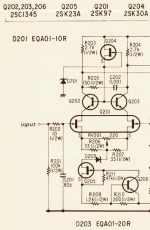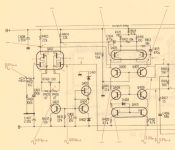I have tended to use cascode in VAS stages, for single VAS and differential. THe main advantage is to eliminate Early voltage distortion but another advantage not mentioned is that the low voltage transistors dissipate far less power than the common base devices. That reduces thermal drift in D.C. coupled amplifiers (or indeed A.C. coupled) especially when using differential VAS stages.
One difficulty with cascodes is that while they push up the frequency response once the response starts to fall it reduces at 12dB/octave which can make it harder to stabilise. Often this can be compensated, even in circuits which avoid a main Miller compensation (which I prefer) with something like a 10pF capacitor, if needed.
I rarely use cascodes on the input stage unless using FETs to increase the voltage capability. Though I used cascodes in one design simply to use BC237's on a high voltage rail (rather than purchasing BC546's for example).
One difficulty with cascodes is that while they push up the frequency response once the response starts to fall it reduces at 12dB/octave which can make it harder to stabilise. Often this can be compensated, even in circuits which avoid a main Miller compensation (which I prefer) with something like a 10pF capacitor, if needed.
I rarely use cascodes on the input stage unless using FETs to increase the voltage capability. Though I used cascodes in one design simply to use BC237's on a high voltage rail (rather than purchasing BC546's for example).
Relics from the High End Past....
He uses JFET to cascode JFET.
🙂 Stefan
Attachments
In that circuit, what was the advantage in connecting Q12/Q14 emitters back to Q6/Q10 instead of just using separate emitter resistors to the rails?Erno Borbely was a big fan also.
@kramtweeter
Hi, Erno Borbely explained a bit in A_60W_Mosfet_Power_Amplifier.pdf 3rd page, middle column.
Hi, Erno Borbely explained a bit in A_60W_Mosfet_Power_Amplifier.pdf 3rd page, middle column.
I had plenty of that in my old active filters that were based on single BC850 buffers with resistor pull-ups. I swallowed the whole "ultra-minimalism" thing (and almost died choking!). Never again!The tonal character of a second part modulates the signal. It will sound a bit more cloudy, more technical, more artificial.
In this case, the tonal character of a resistor and 20V rail was that the BC850's gain was being modulated by the changing resistor current. With an additional BC860 as a constant current source (pretending to be 20M ohm with 1000V across it or something like that), this would have been greatly reduced.
Last edited:
Strange view, i cascode to get more voltage swing with voltage limited devices....The downside is that less voltage swing is available.
Ed
They are serial connected so voltage adds up, not down
It depends on what constraints you assume. At a given supply voltage, you have less headroom because you need some voltage for the cascode. It's mainly an issue when the supply voltage is quite low.
Especially in the first stage, where high amplification is benificial to supress noise and distortion. At given signal levels at that 1st output, supply voltage is not so much important. It's balancing the involved issues.
In the next voltage gain / vas stage, other considerations apply and other choices may become or are very valid.
In the next voltage gain / vas stage, other considerations apply and other choices may become or are very valid.
- Home
- Amplifiers
- Solid State
- Cascode. When to cascode and when not. Your experience? Examples?


